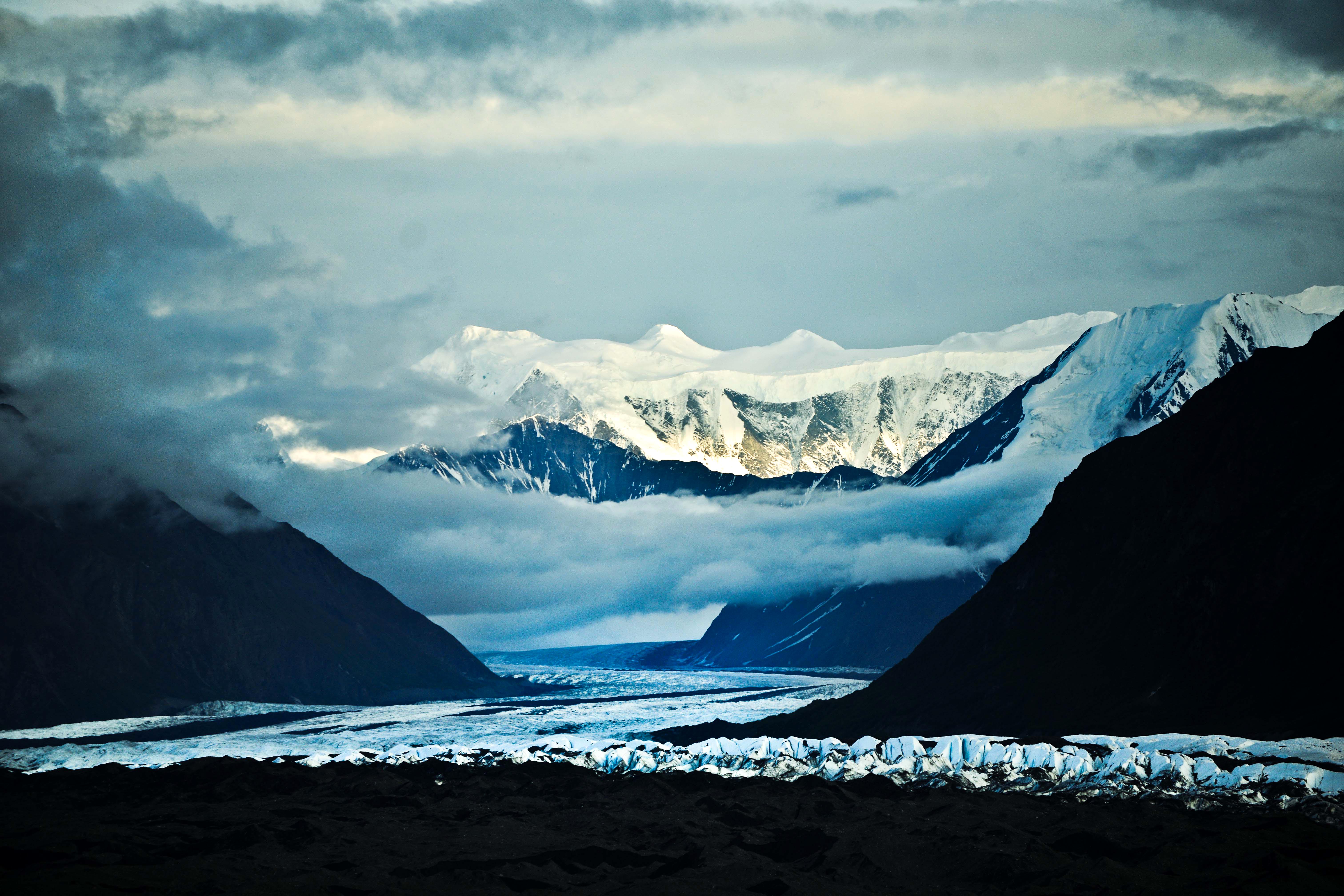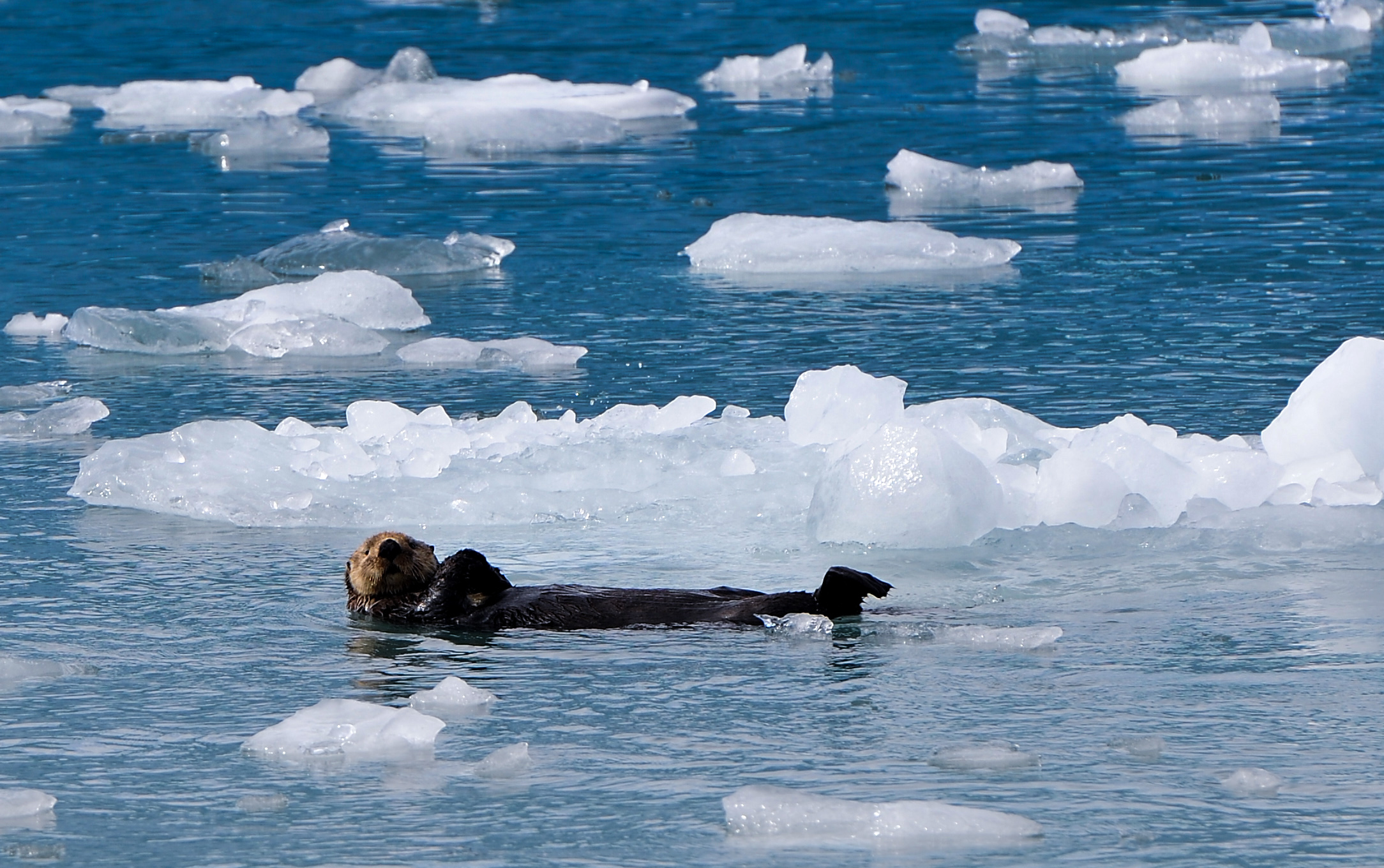
Photo taken on Aug. 16, 2012 shows mountains and glaciers in Alaska, the United States. (Xinhua/Shen Hong)
UNITED NATIONS, July 14 (Xinhua) -- With unprecedented wildfires in the Arctic due to climate change, the World Meteorological Organization (WMO) has started a vegetation fire and smoke warning service, a UN spokesman announced on Friday.
"There have been unprecedented wildfires in the Arctic since the beginning of June, according to the WMO," said Farhan Haq, deputy spokesman for UN Secretary-General Antonio Guterres.
In view of the risks, the WMO has initiated a Vegetation Fire and Smoke Pollution Warning and Advisory System to harmonize fire forecasting across the globe and to provide a better picture of related impacts and hazards, Haq said.
More than 100 intense and long-lived wildfires were recorded in the Arctic Circle. In Alaska and Siberia, some were large enough to cover almost 100,000 football pitches, he said.
The WMO found the northern part of the world is warming faster than the planet as a whole, the spokesman said. "That heat is drying out forests and making them more susceptible to burn."

Photo taken on Aug. 17, 2012 shows a sea otter at Resurrection Bay in Alaska, the United States. (Xinhua/Shen Hong)
Alaska has had its second hottest June and hit a record high of 32 degrees Celsius a week ago, and in parts of Siberia, the average June temperature was almost 10 degrees Celsius higher than the long-term average, he noted.
Haq said wildfires also release carbon dioxide into the atmosphere, contributing further to global warming. "In June alone, the Arctic fires emitted 50 megatons of carbon dioxide into the atmosphere."
Fires in the Arctic also increase the risk of further permafrost thawing that releases methane, which is also a greenhouse gas, the WMO said on its website.
"The pristine Arctic environment is particularly sensitive/fragile and warming faster than most other regions," the specialized UN agency said. "Particles of smoke can land on snow and ice, causing the ice to absorb sunlight that it would otherwise reflect, and thereby accelerating the warming in the Arctic."



